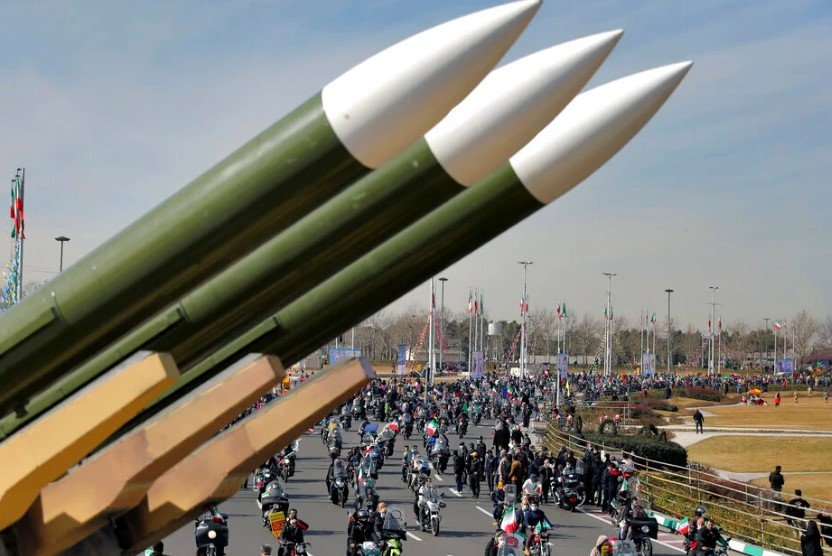In a sharp escalation of tensions, an adviser to Iranian Supreme Leader Ayatollah Ali Khamenei has stated that Iran would have “no choice” but to develop nuclear weapons if attacked by the United States or its allies. The remarks came after a weekend of heated exchanges between Iran and the U.S., following President Donald Trump’s threats to bomb Iran and impose further tariffs unless Tehran agrees to a new nuclear deal.
Growing Tensions Between Tehran and Washington
On Sunday, President Trump warned Iran in no uncertain terms: if they don’t come to terms with Washington over their nuclear ambitions, they would face the consequences. Speaking to the press, Trump said, “There will be bombing,” signaling the possibility of military action if Iran doesn’t accept the terms laid out by the U.S.
Iran’s leadership did not take the threat lightly. Ayatollah Ali Khamenei, Iran’s supreme leader, responded by promising retaliation if the U.S. carried out its threats. The standoff escalated quickly, leading to a flurry of diplomatic activity. On Monday, Iran formally complained to the United Nations Security Council (UNSC) about what it described as the “reckless and belligerent” remarks made by Trump.
This statement, issued by Iran’s Ministry of Foreign Affairs, was a direct condemnation of U.S. aggression. Iran’s officials maintained that their country was committed to peaceful nuclear energy development and that the blame for any potential escalation lay squarely with Washington.
Larijani’s Stark Warning on Nuclear Weapons
In a televised interview with state media, Ali Larijani, a key adviser to Khamenei, expressed Iran’s grave concerns regarding Trump’s threats. Larijani made it clear that Iran does not seek nuclear weapons, but he also pointed out the nation’s obligation to protect itself. “We are not moving towards (nuclear) weapons,” he said. “But if you do something wrong in the Iranian nuclear issue, you will force Iran to move towards that because it has to defend itself.”

These comments underscored the fragile nature of the ongoing nuclear talks between Iran and the West. Despite international calls for restraint, the rhetoric between the two nations continues to heat up. Larijani’s message was stark: Iran, if pushed into a corner, would pursue nuclear arms as a last resort for self-defense.
The adviser also added a chilling reminder that, should the U.S. or Israel take military action against Iran, Tehran would be forced to reassess its approach to its nuclear program. “If at some point you (the U.S.) move towards bombing by yourself or through Israel, you will force Iran to make a different decision,” Larijani warned.
U.S. and Iran Locked in a Dangerous Game of Diplomacy
This latest exchange is part of a larger ongoing conflict over Iran’s nuclear program, which has been a point of contention between Iran and several Western powers for years. The landmark 2015 nuclear deal, formally known as the Joint Comprehensive Plan of Action (JCPOA), had provided a framework for limiting Iran’s nuclear development in exchange for sanctions relief. However, the deal was effectively abandoned by President Trump in 2018, who argued that it was too lenient on Iran and did not address its missile program or regional activities.
In response to the U.S. withdrawal, Iran has slowly rolled back its commitments under the deal, prompting fears that the country could soon be capable of developing nuclear weapons. The Trump administration has since ramped up pressure on Tehran, employing both sanctions and military threats to bring Iran back to the negotiating table.
Now, with both sides hardened in their positions, the prospects for a new agreement appear increasingly uncertain. Trump’s rhetoric, combined with Larijani’s warning, has raised concerns about a military confrontation. The idea of a “nuclear Iran” remains a highly contentious issue, with many experts warning of the regional and global ramifications if Tehran were to develop a nuclear weapon.
Global Reactions and Diplomatic Uncertainty
The international community has largely called for calm in response to the escalating tensions. The European Union, which was a signatory to the 2015 nuclear deal, has repeatedly urged both sides to return to the negotiating table. However, the EU’s calls have had little effect on the rhetoric emanating from both Washington and Tehran.
Many analysts fear that the situation is becoming a powder keg. The potential for a miscalculation or accidental military clash between the U.S. and Iran or its allies could have disastrous consequences, especially with the threat of nuclear proliferation hanging over the region.
In Israel, which has long been wary of Iran’s nuclear ambitions, the situation is being closely monitored. Prime Minister Benjamin Netanyahu has repeatedly warned that Iran’s nuclear capabilities must be prevented at all costs, echoing concerns that Israel might take military action on its own to curb Iran’s progress.
Meanwhile, the United Nations has urged both countries to engage in dialogue and avoid further escalation. The UN’s Secretary-General, Antonio Guterres, has called for “restraint” from both sides, acknowledging that the tension in the Middle East is reaching a boiling point.
What Lies Ahead?
As the conflict between the U.S. and Iran continues to unfold, it remains unclear whether the two nations will find a way to resume meaningful talks or whether the rhetoric will evolve into something more dangerous. For now, Iran maintains that it will not back down from its nuclear program, while Washington insists on a new deal with stricter terms.
With threats from both sides escalating, the world watches closely, hoping that diplomatic channels can defuse the situation before it spirals into open conflict.
